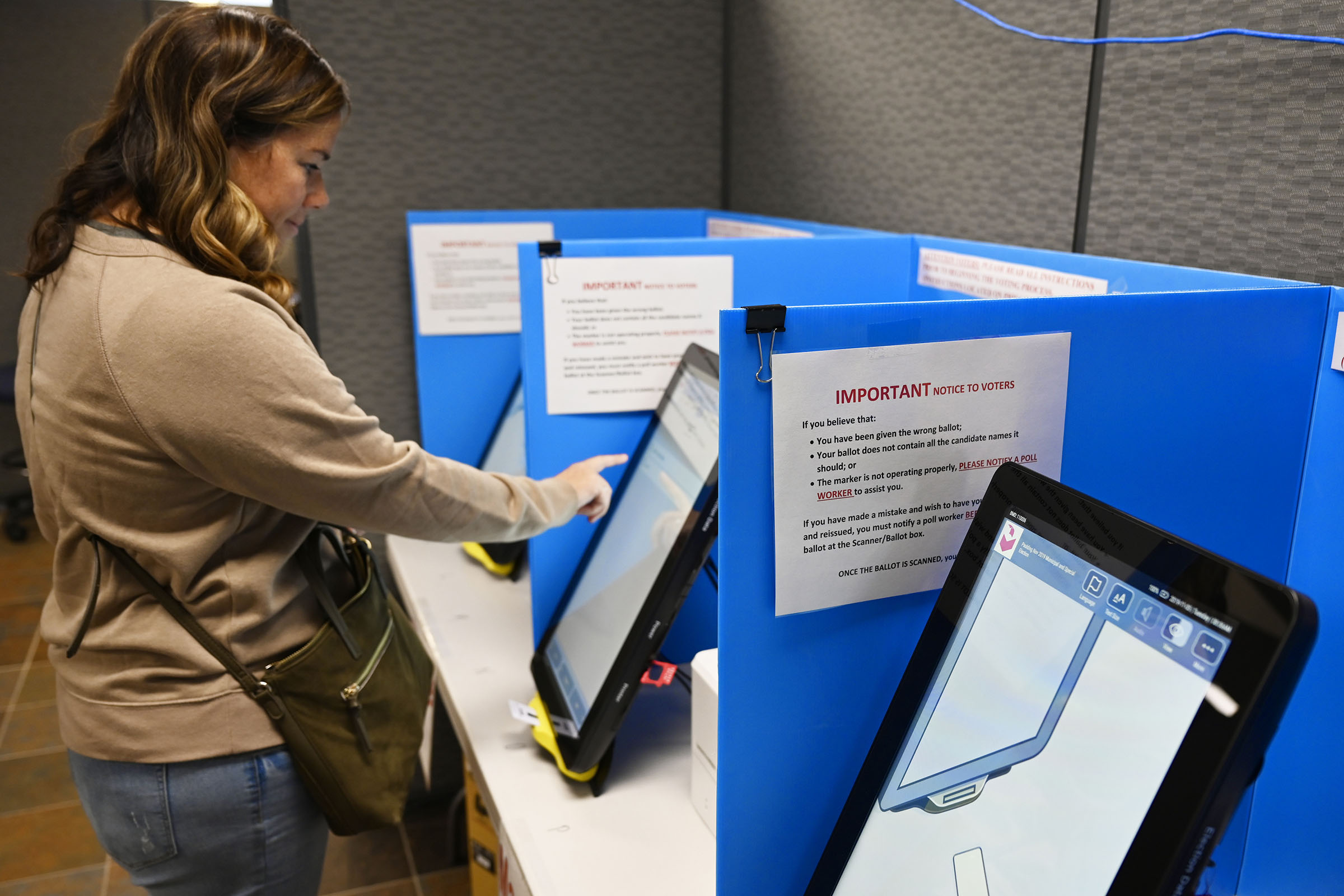With the start of early voting less than a week away and a software update being installed to address a glitch in Georgia’s voting machines, a federal judge was still considering a request by voting integrity activists to sideline the new touchscreen voting machines in favor of hand-marked paper ballots for the November general election.
U.S. District Judge Amy Totenberg is presiding over a long-running lawsuit filed by election integrity advocates that challenges the election system the state bought last year from Dominion Voting Systems for more than $100 million. The activists argue that the system places an unconstitutional burden on the right to vote because voters cannot be confident their votes are accurately counted. A recently identified bug in the touchscreen machines and a hasty software update underscore that they aren’t ready for use, they say.
State officials have countered that Georgia has made significant improvements in recent years to update and secure election infrastructure. They have urged Totenberg not to order any changes so close to the election, saying they would be extremely costly and difficult to implement in time. The new problem was identified through testing meant to catch such issues and was quickly addressed, they say.
The three-week in-person early voting period is set to begin Monday, and Election Day is less than four weeks away.
Totenberg said she had been ready to issue a ruling on Sept. 28 until the activists raised new concerns about the voting machines in a Friday night court filing three days earlier.
During preelection testing, election officials in two counties discovered a problem with the display for a high-profile, 21-candidate U.S. Senate race. Under certain circumstances, not all of the candidates’ names fit on a single screen.
Lawyers for the state and a representative from Dominion told the judge during an emergency teleconference Sept. 28 that it was a “very minor issue” that could be addressed with a software change.
Lawyers for the activists raised concerns about the severity of the problem and the security of a last-minute fix.
Dominion submitted the fix to a third-party laboratory, Pro V&V, for evaluation. A report from Pro V&V unsealed by the judge Monday says the problem is not found in the new version of the software and the change was minor.
The election integrity activists submitted declarations from two computer science experts who reviewed the Pro V&V report. They said the company’s evaluation was insufficient to verify the cause of the problem and the effectiveness of the proposed solution.
The experts also said the report indicates multiple changes to the source code, meaning there’s a greater likelihood of unintended side effects and opening the door for hackers to infect the voting machines with malware.
The safeguards and testing outlined by the state to mitigate those risks are inadequate, the experts said.
The process of updating the software requires completely replacing the core of the Dominion software on every voting machine, one of the experts, University of Michigan computer science professor J. Alex Halderman, testified last week according to a transcript of the closed-door hearing unsealed Monday.
“(T)his is not a typical procedure to be going through,” he said. “In an emergency, perhaps you would need to. But even then, it would be an extremely risky thing to be doing both from a correctness standpoint and from a security standpoint.”
The state also appeared to be moving forward with the new software without the change having been approved by the U.S. Election Assistance Commission, which sets voluntary guidelines for election management and certification.
The EAC was reviewing the request from Dominion Voting after receiving it Tuesday, according to Ben Hovland, commission chairman. Dominion had previously submitted the change a lab certified by the commission, which should help expedite the review, he said.
But the update was distributed to county election officials for installation on their machines last week with instructions to install it.
Kevin Skoglund, another of the activists’ experts, told the judge that the EAC certification of a voting system would be voided if the software change was made without prior written approval from the commission.
Georgia law says the voting voting machines “shall be certified by the United States Election Assistance Commission prior to purchase, lease, or acquisition.”
The update was certified by the secretary of state after “thorough testing and validation” by Dominion, Pro V&V and the secretary of state’s office, Deputy Secretary of State Jordan Fuchs said.
“Georgia law was expressly written to not require continued EAC certification for updates, but to only require it for the initial purchase of the system,” she said.
Marilyn Marks, executive director for the Coalition for Good Governance, a plaintiff in the suit, rejected that reading of the law.
“This is like saying that school buses need good tires when purchased but the tires can be replaced with bald tires as soon as they leave the factory,” she said.









